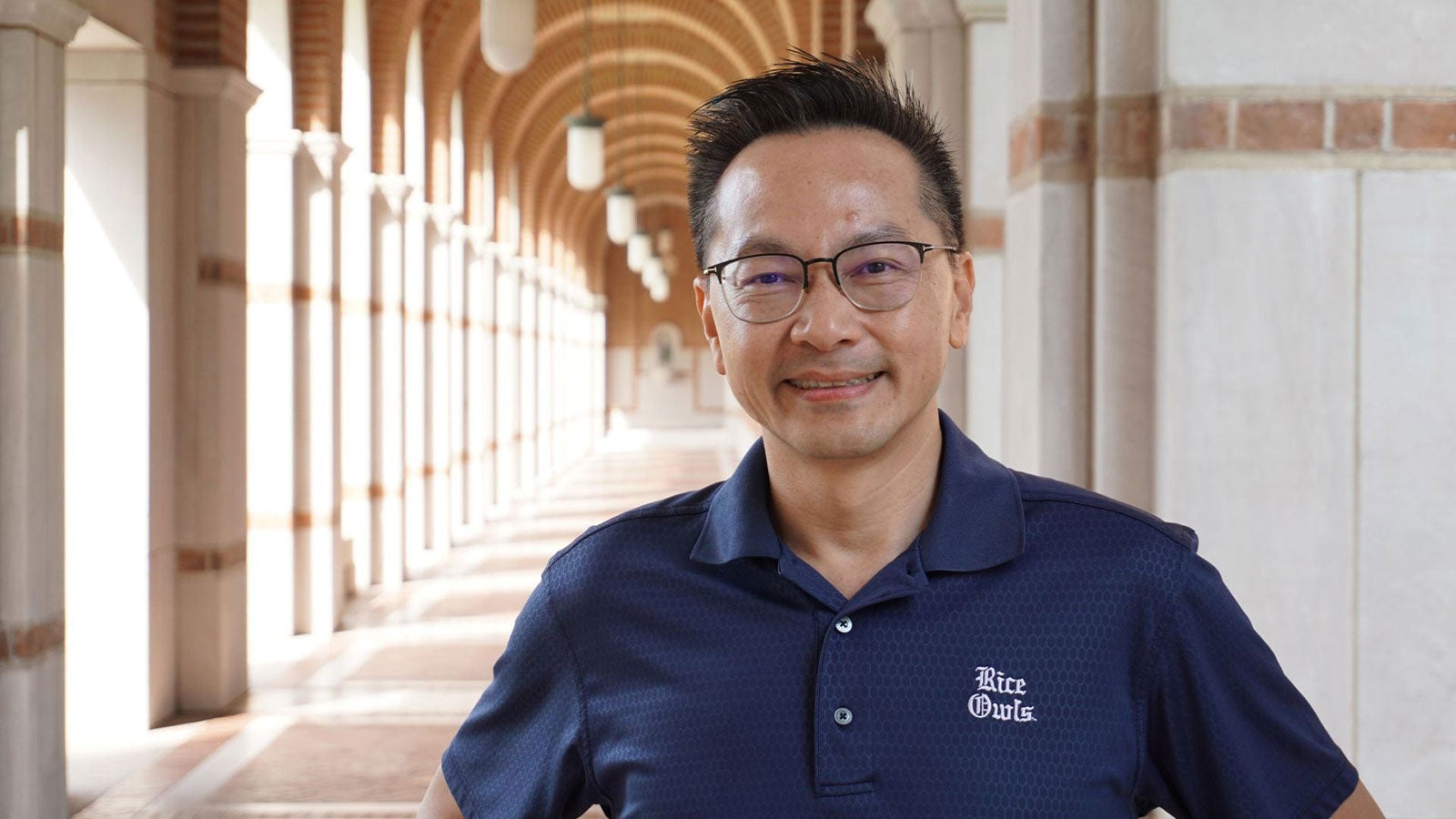Michael Wong, the Tina and Sunit Patel Professor in Molecular Nanotechnology and professor in the departments of Chemical and Biomolecular Engineering, Chemistry, Materials Science and Nanotechnology, and Civil Environmental Engineering at Rice University’s George R. Brown School of Engineering and Computing, has been named as the recipient of this year’s 2025 AIChE Nanoscale Science and Engineering Award.
This prestigious award by the American Institute of Chemical Engineers (AIChE), the world’s leading professional society for chemical engineers, recognizes outstanding contributions to the advancement of nanoscale science and engineering in the field of chemical engineering through scholarship, education or service. Wong will receive the award at the AIChE annual meeting on Nov. 3 in Boston, Mass., this year.
“We are thrilled that Mike has been chosen to receive this award,” said Sibani Lisa Biswal, chair of the Chemical and Biomolecular Engineering Department and William M. McCardell Professor in Chemical Engineering and a professor of Materials Science and NanoEngineering at Rice’s School of Engineering and Computing. “Mike’s research demonstrates how deep expertise and creativity in nanoscale science can be harnessed to solve urgent societal challenges. His breakthroughs in clean-water technology are transforming the way we address persistent contaminants, and his leadership continues to inspire and shape the field.”
Wong was selected for this award for his pioneering research and leadership in bridging the fields of chemistry, nanotechnology, chemical and environmental engineering to devise innovative, practical, and scalable clean-water technology solutions to tackle environmental and societal problems. He recently discovered boron nitride nanostructures can act as a selective and durable photocatalyst to permanently break down per- and polyfluoroalkyl substances (PFAS), the so-called ‘forever chemicals’ that include non-stick coatings like Teflon. This discovery has led to several elegant, scalable and sustainable real-world applications, and is the latest in a series of nanotechnology-based clean-water breakthroughs Wong has developed over the years.
He has published more than 210 scientific papers and served on editorial boards for high-impact journals, organized international symposia on nanotechnology for sustainability, and served as the only chemical engineer on the American Chemical Society Committee on Publications and the U.S. Army Science Board. He is associate editor for Environmental Science and Technology journal, providing scientific guidance on nanomaterials and catalysis for environmental use.
Wong’s contributions extend well outside the laboratory and scholarly publishing. As Research Thrust Leader in the NSF Engineering Research Center for Nanotechnology-Enabled Water Treatment (NEWT) and the Rice Water Institute, he uses his deep knowledge and expertise in chemical engineering to accelerate the translation of laboratory advances to engineered systems. As a former chair and long-time officer of the AIChE Nanoscale Science and Engineering Forum (NSEF), he advanced the visibility of nano-focused chemical engineering and built inclusive communities of practice that continue to thrive.
“It is a great honor to be recognized by my peers and colleagues at AIChE,” Wong said. “This award is particularly meaningful as it brings back memories of the Nanoscale Science and Engineering Young Investigator Award, which I received as I was setting up my research program at Rice.”

